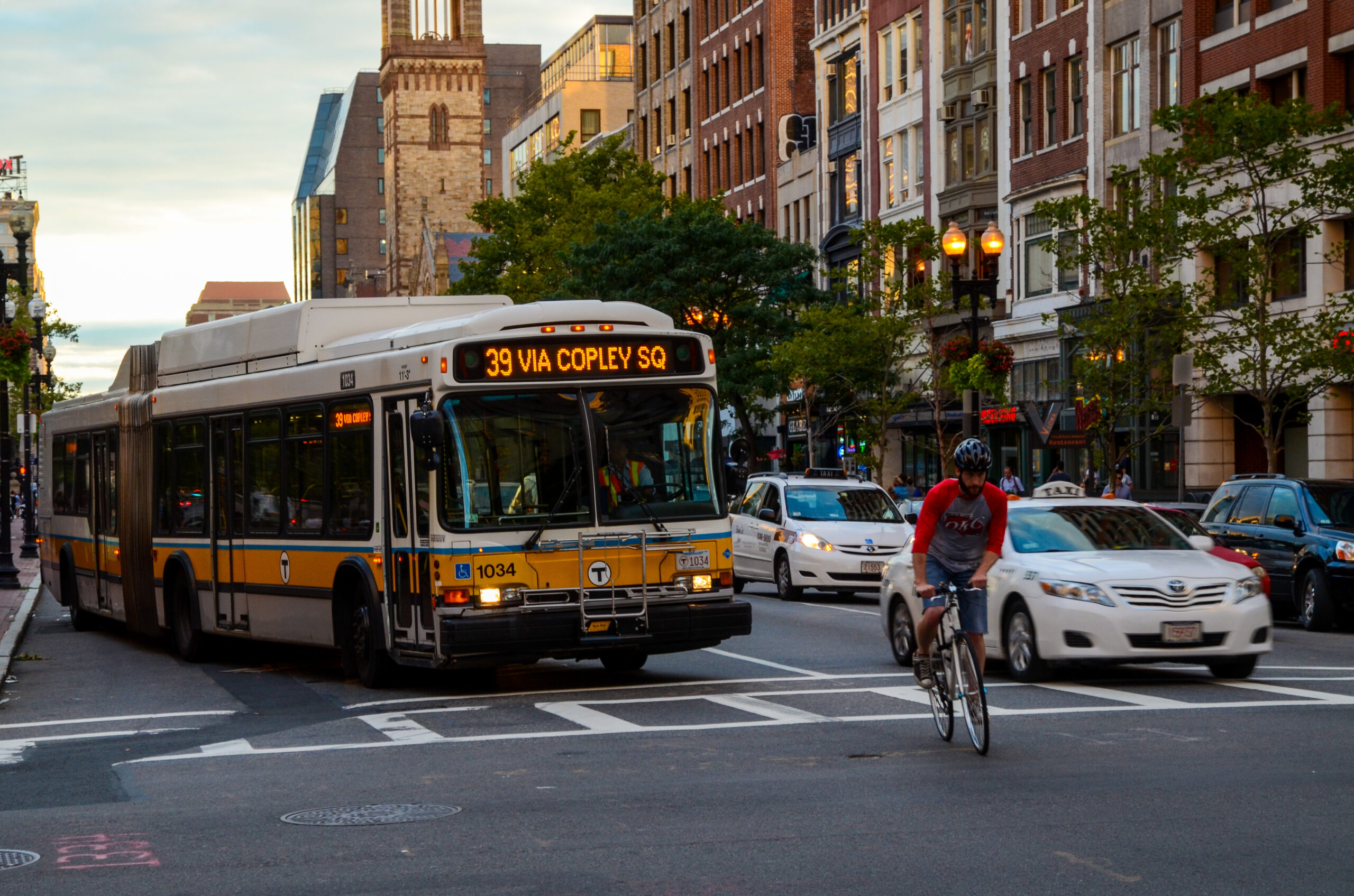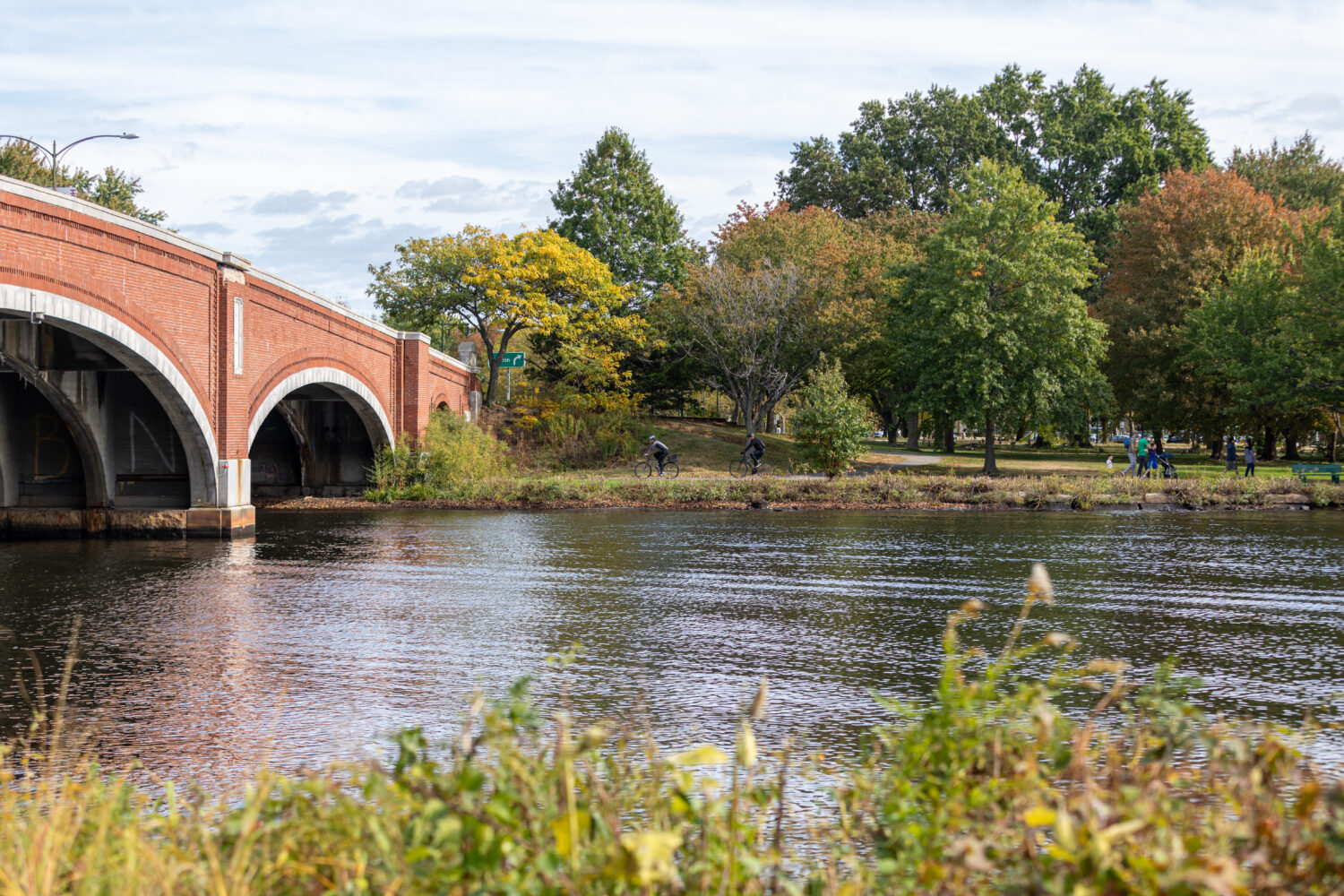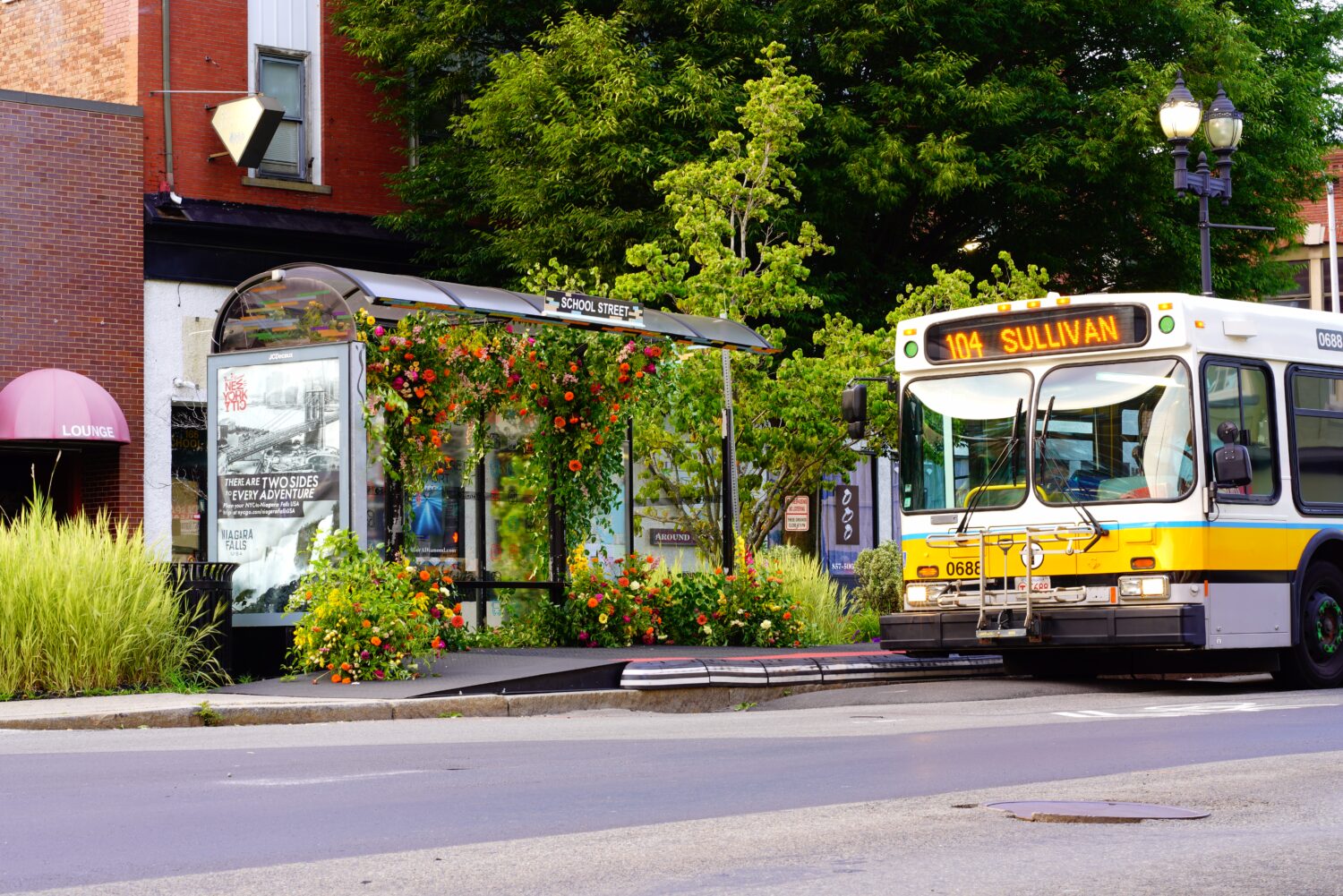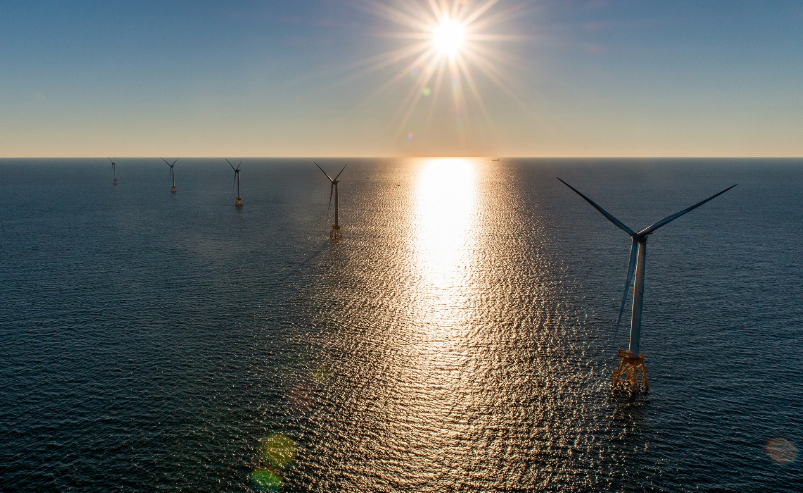Today, global and national mayors will convene in Boston to advance shared solutions around climate change. By 2030, more than 60 percent of the world’s population will live in cities. Mayors will increasingly have more opportunity – and a deeper responsibility – to lead on climate change.
Boston has been a leader in planning for a future that will most certainly include higher tides, hotter days, and more extreme weather. Through Climate Ready Boston, the city has built a strong and comprehensive plan to manage growth, ensuring existing neighborhoods can thrive and new neighborhoods are ready for the changing climate.
Boston, like many other cities, has room to grow if it wants to mitigate the impacts of the largest emitter of greenhouse gases in the US: the transportation sector. Luckily, transportation is one of the areas in which a mayor can have the greatest influence.
For example, Seattle has increased its population by more than 15 percent since 2010 whilesimultaneously reducing the number of commuters driving private vehicles downtown by 10 percent. How? By prioritizing transit, including dramatically improving bus service.
Reprioritize city streets.
Streets are one of the largest land assets cities own, but many mayors cede this precious space almost entirely to private car use. Car-centric street design sends the message that driving alone to work, school, and appointments is a city’s preferred transportation option for residents. Many cities are seeing major upticks in traffic congestion as a result.
Cities can make simple fixes like adding dedicated bus lanes during peak commuting hours to greatly improve transit reliability and enable more people to choose the bus over their car. Everett, here in Massachusetts, has been a pioneer around street priority, setting up a now-permanent “pop-up” dedicated bus lane on one of their main commuting throughways. Boston followed with a dedicated lane pilot in the Roslindale neighborhood, and the Barr Foundation is proud to be partnering with Everett, Arlington, Cambridge, and Watertown on other projects promoting better buses. The goal is to move the region closer to designing true bus rapid transit routes—the gold standard in moving people efficiently and effectively on local roads.
Create better linkages between open spaces.
Parks are a tried-and-true public health tool and will play an important role in resilience by reducing the “heat island effect” and mitigating climate change-induced flooding. Creating better linkages between park spaces takes driving out of the recreation equation. For example, Boston’s Green Links program is a city-wide plan to connect people in every neighborhood to Boston’s greenway network by installing new walking and bike paths, and safer road crossings. Programs like this encourage people to walk and bike more (the original low- and no-carbon modes of transportation). Green spaces are also a key part of making cities more resilient in the face of extreme weather related to climate change.
Promote greater density near transit.
People in cities want to live near where they work and play. In Boston, we’ve heard this again and again from the major employers – including GE, Amazon, and Reebok – moving into our urban core. Mayors can attract new talent and new businesses by taking a close look at zoning policy near transit stations. Updating zoning can be a politically tough road, but building denser near transit encourages a city lifestyle that doesn’t require driving
Accelerate regional mobility solutions.
As we’ve seen with the Regional Greenhouse Gas Initiative around clean energy, states acting together are a force to be reckoned with. This multi-state effort has generated roughly $4 billion in net benefits to the region over nine years of implementation while reducing harmful emissions from power plants. Currently, 11 Northeast and Mid-Atlantic states (including Massachusetts) and the District of Columbia are working together on the Transportation and Climate Initiative (TCI) — a regional collaboration that seeks to improve transportation, develop the clean energy economy, and reduce carbon emissions from the transportation sector. Mayors in these states can and should show strong support for this effort to move forward — and regions across the country can learn from this collaborative and bi-partisan model.
Bringing mayors together to confront climate change is an enormous opportunity. Keeping transportation high on the agenda sets the stage for an impactful summit and ultimately cleaner, more livable cities everywhere.
This article was originally published in the Opinion section of CommonWealth Magazine on June 7, 2018.



